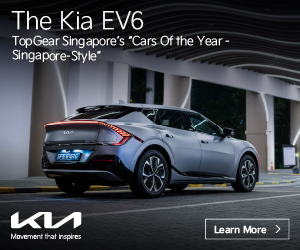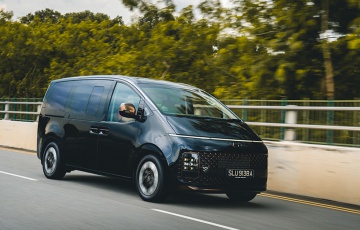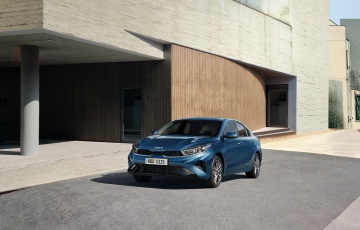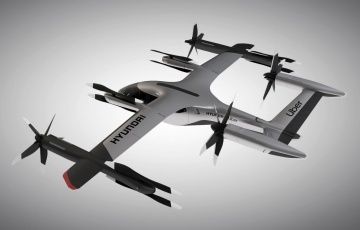This is the newly paddleshifted Hyundai i30N
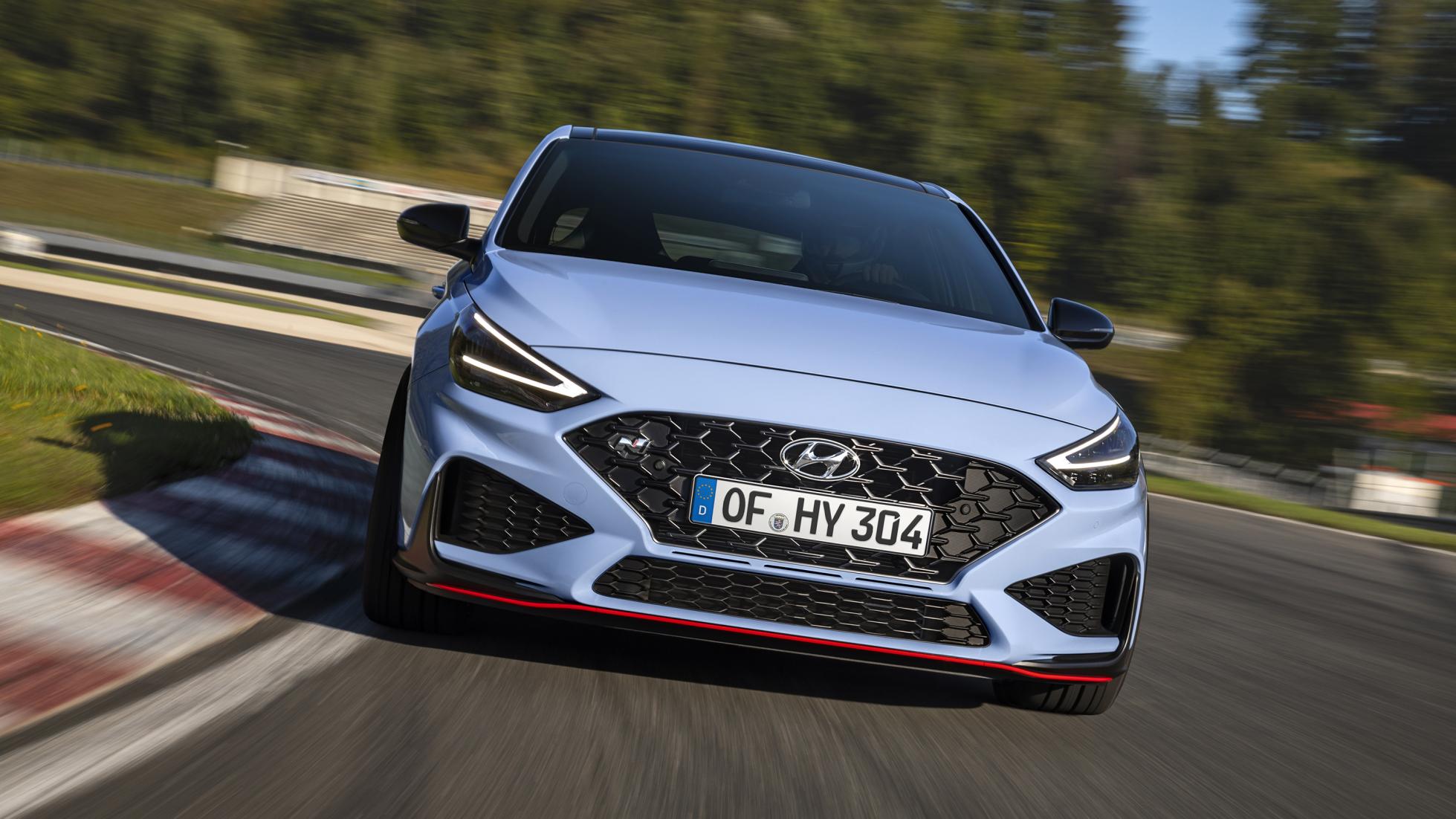
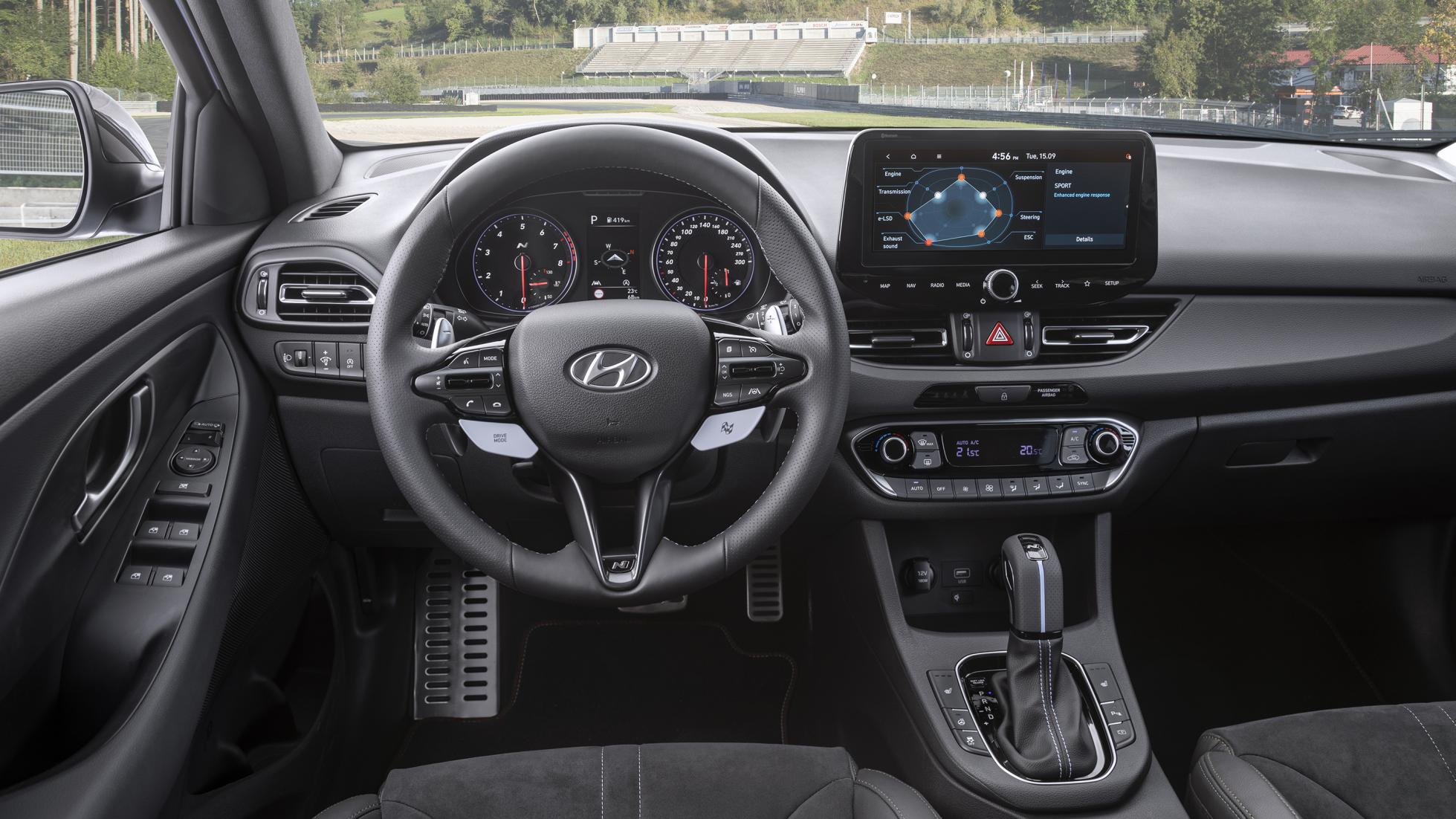
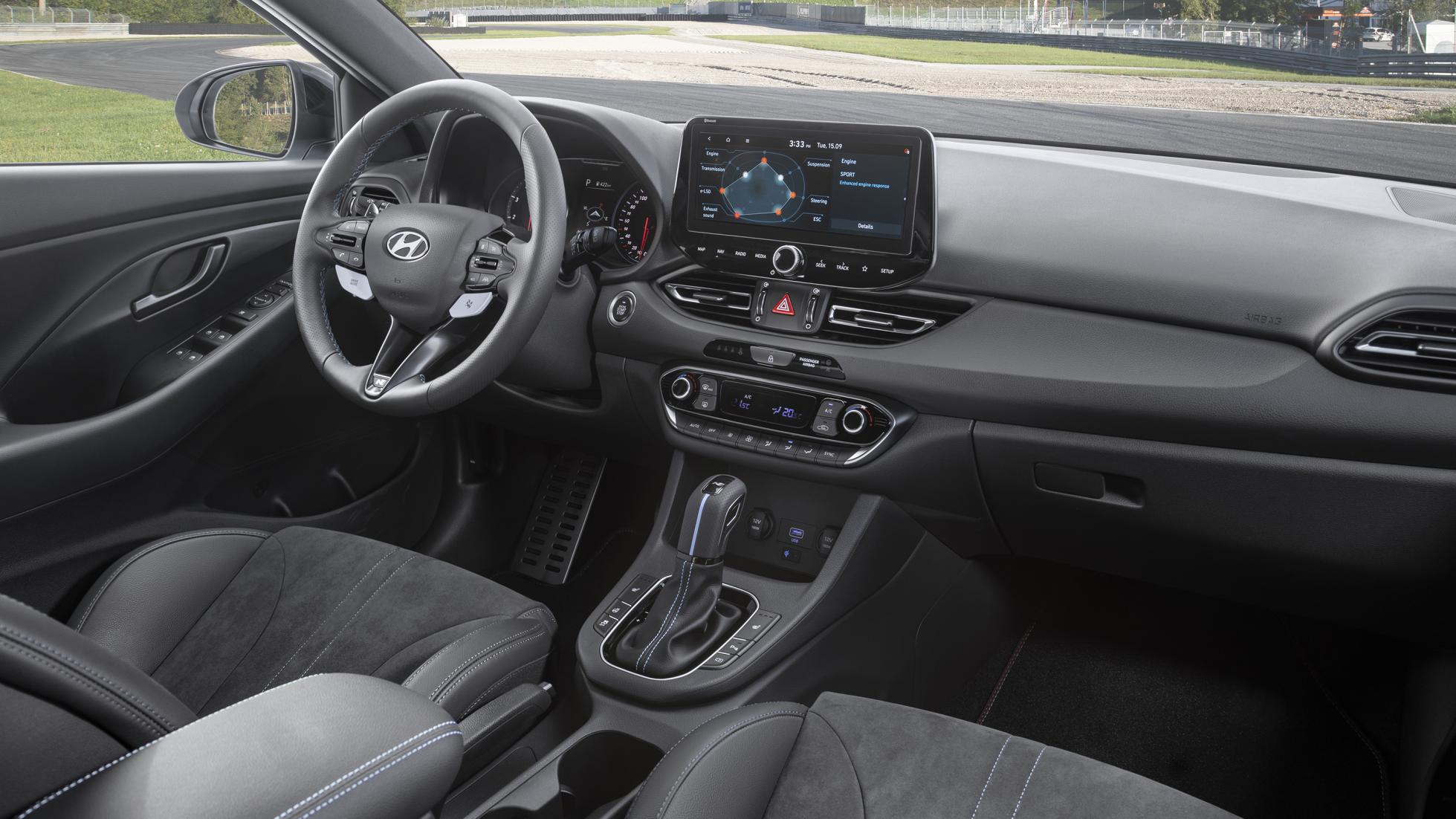
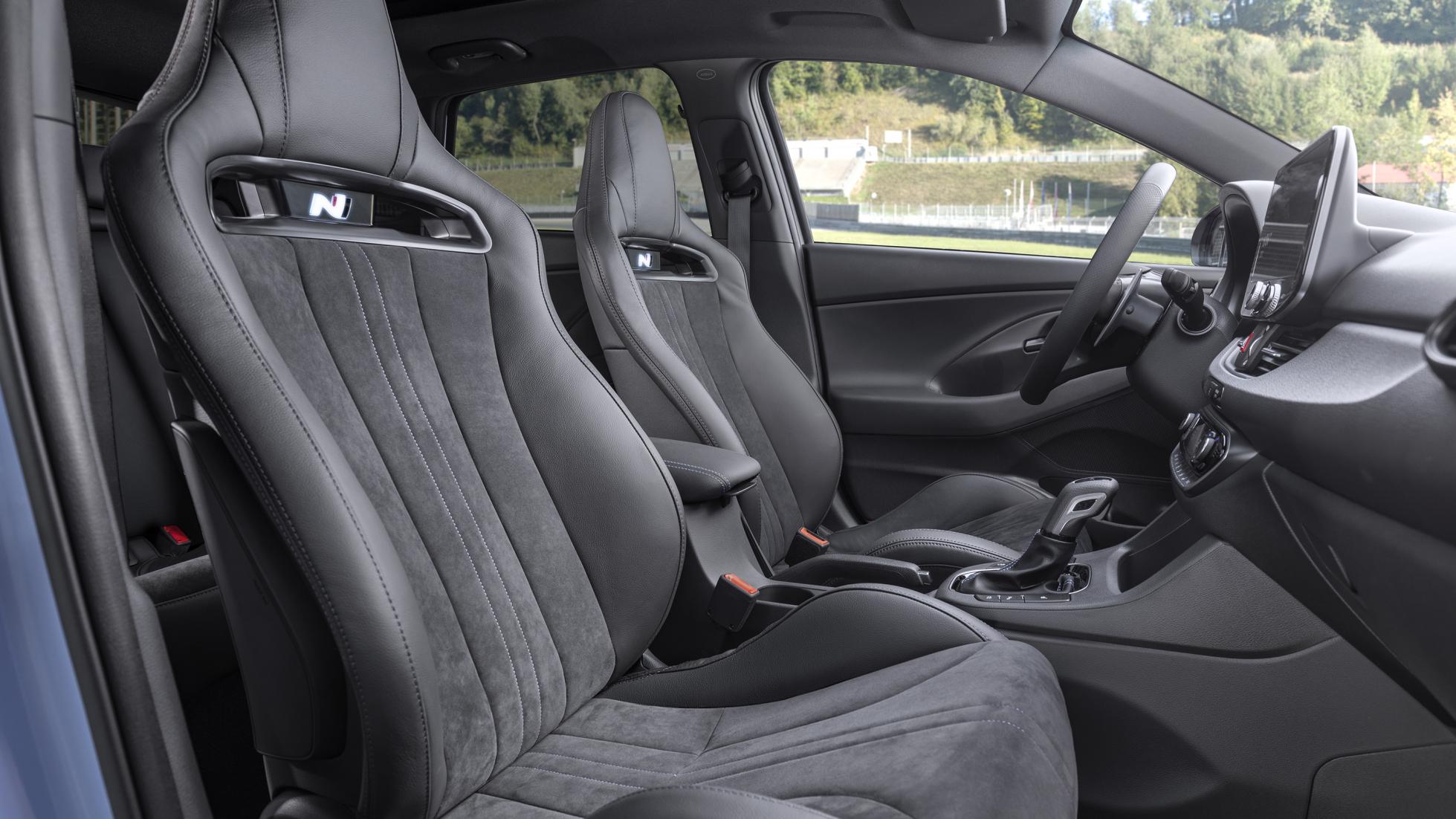
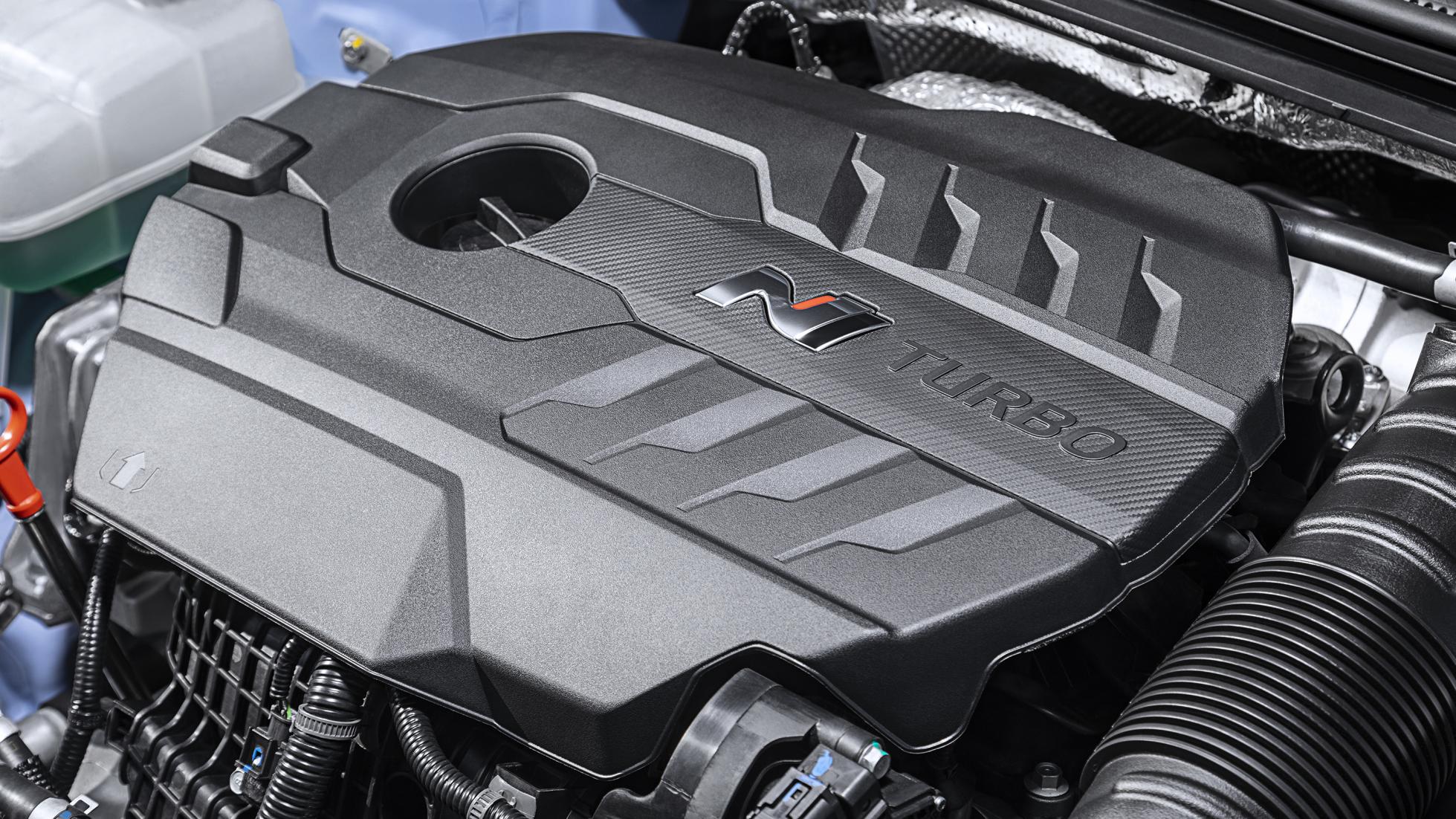
This is the new Hyundai i30N, the mid-life update of one of the great performance car underdogs in recent memory. More rambunctious than a Civic Type R while nearly as liveable as a Golf GTI, it caused a bit of a stir on Planet Hot Hatch right out the box.
You’d forgive Hyundai for leaving the recipe alone, but it’s flung in a whole heap of extra ingredients and while the exterior looks only marginally different – its new LED light signatures and larger tailpipes the most obvious changes – a reasonable amount has changed beneath the skin.
There are still two tunes of 2.0-litre turbo four available; 250hp as standard, or 280hp for the Performance version, representing a 5hp rise.
Grabbing most of the headlines is the fact you now get a choice of six-speed manual or eight-speed twin-clutch automatic gearboxes. The former still gets rev-matching as standard (easily turned off rev-matching, purists will delight in knowing) while the latter offers three different functions: N Grin Shift, N Power Shift and N Track Sense Shift.
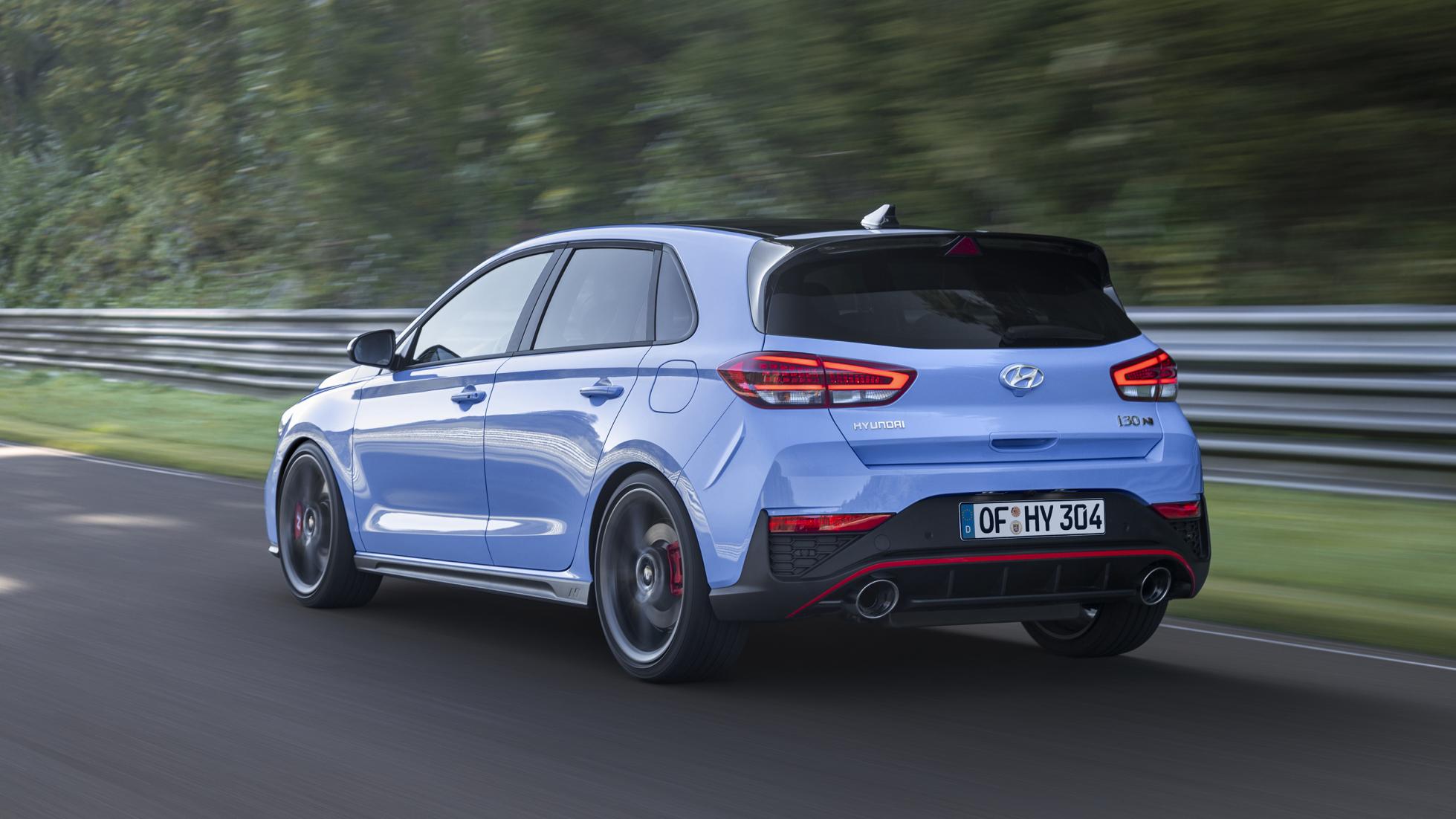
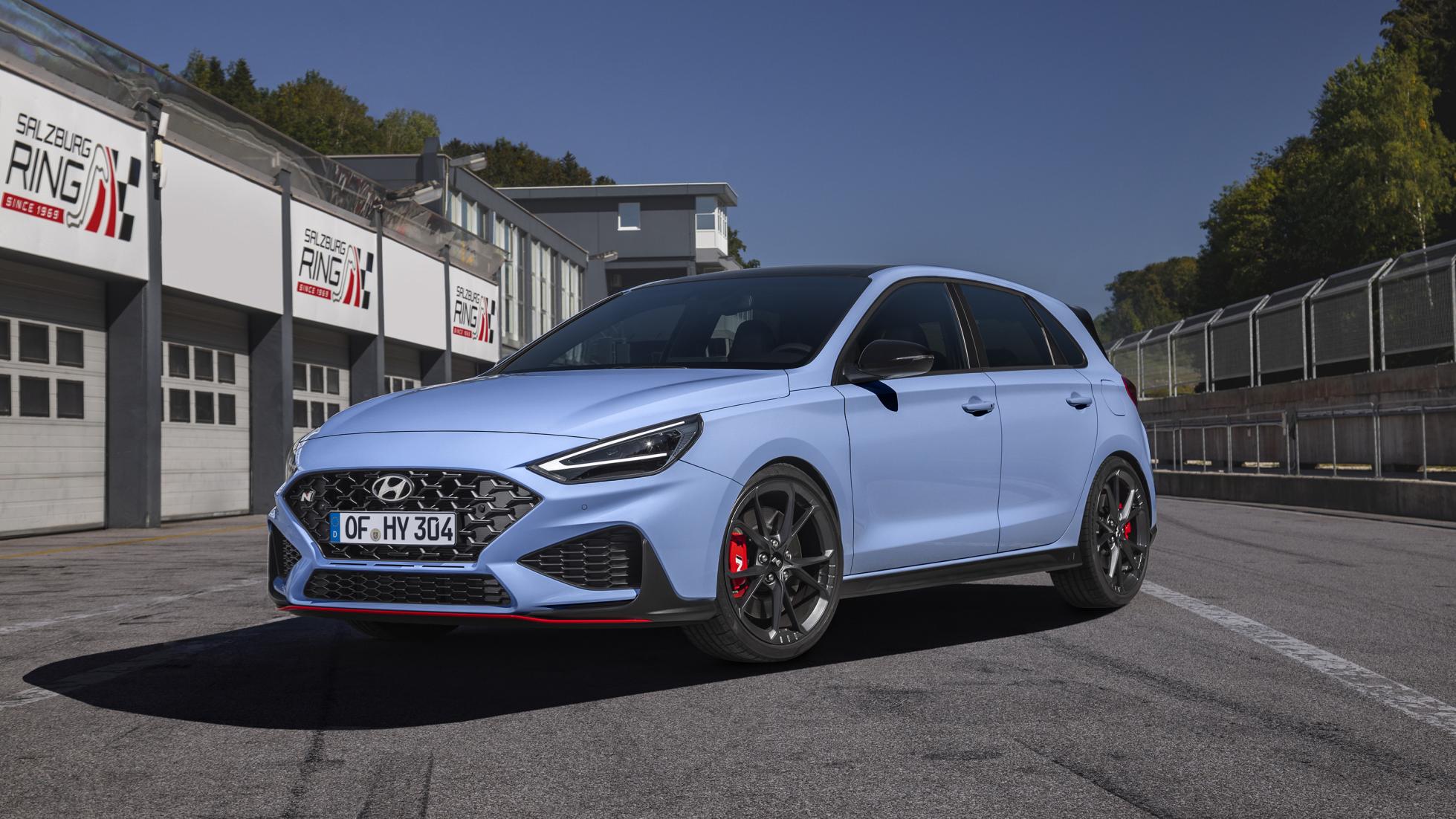
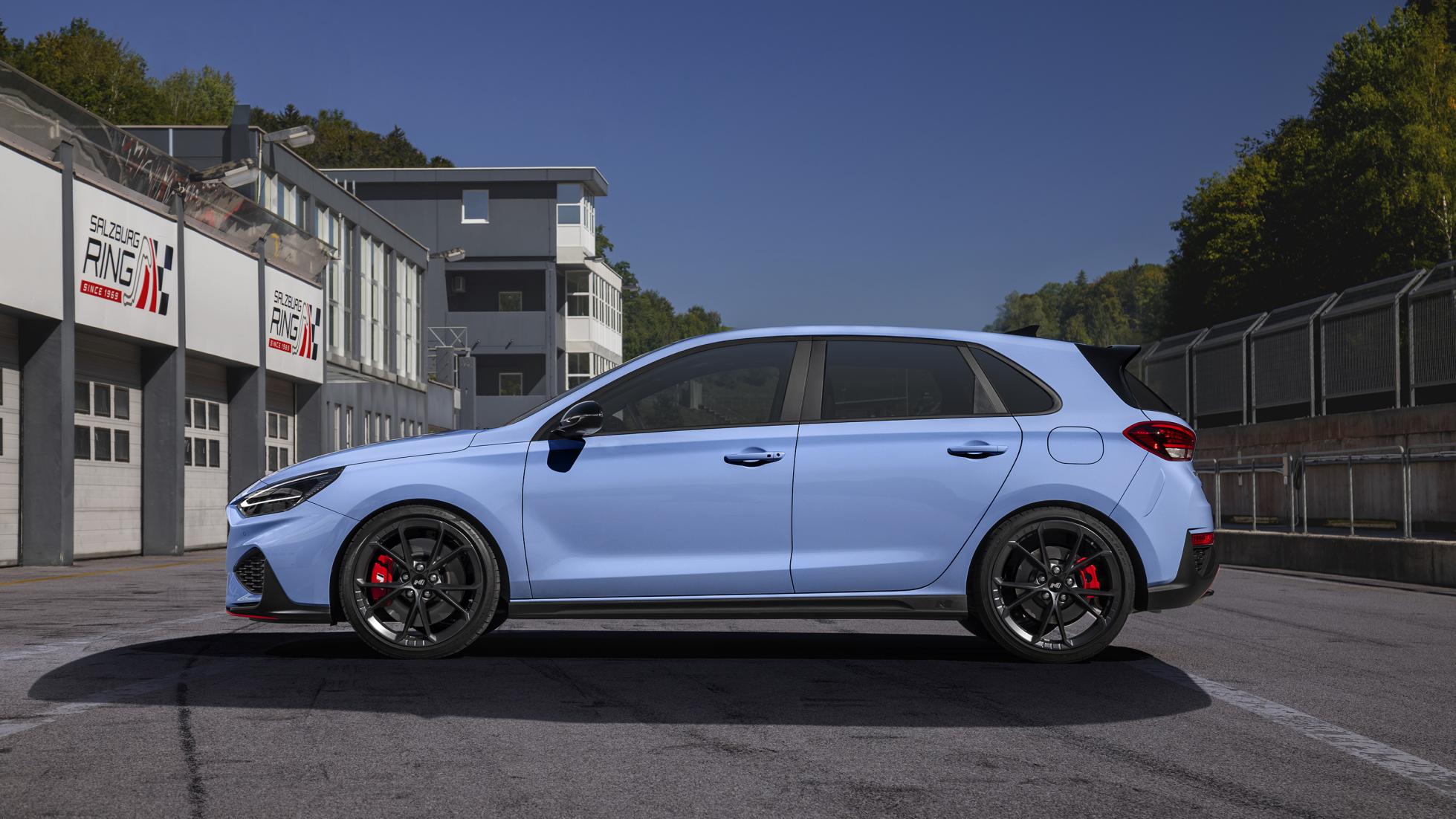
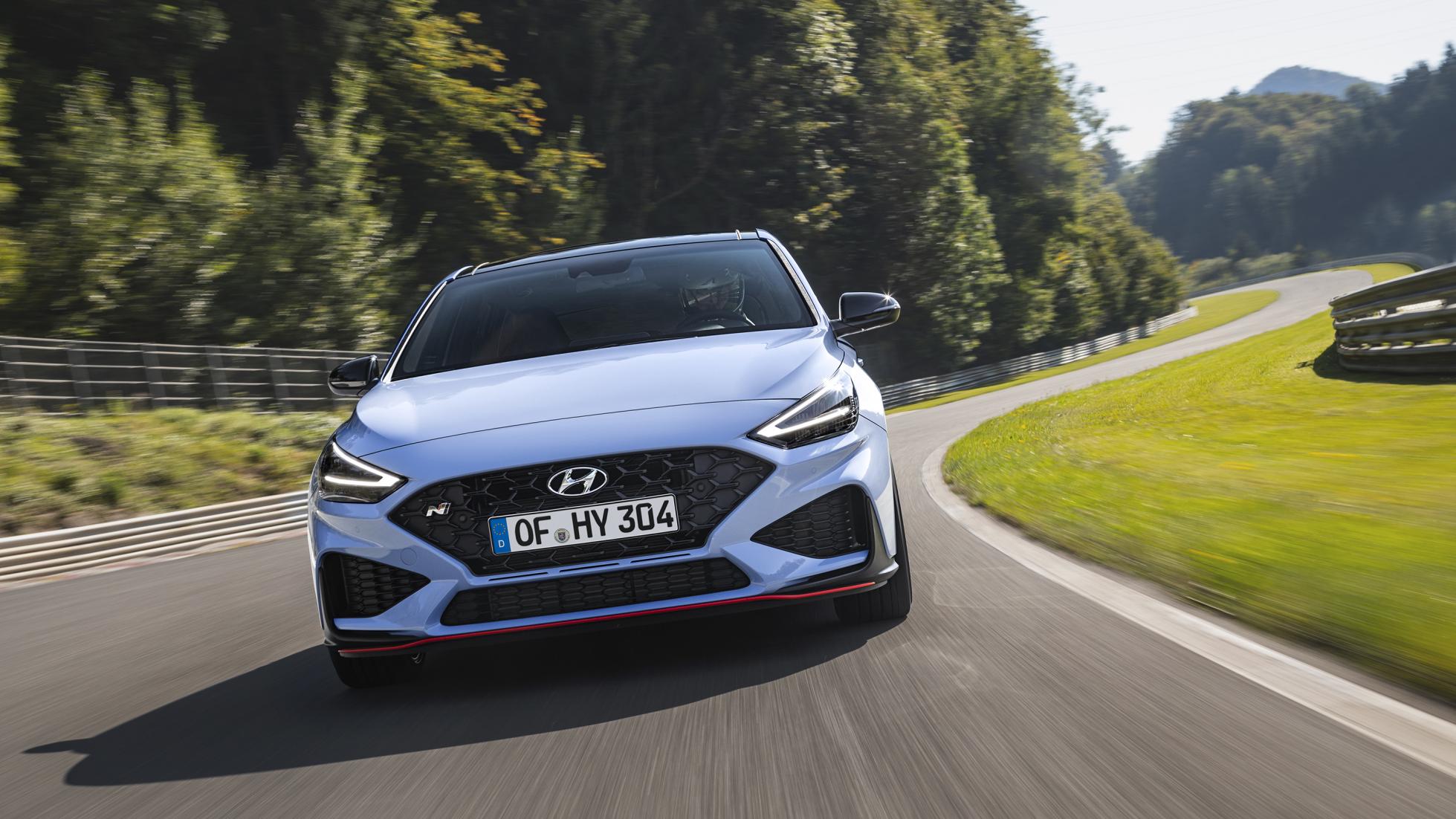
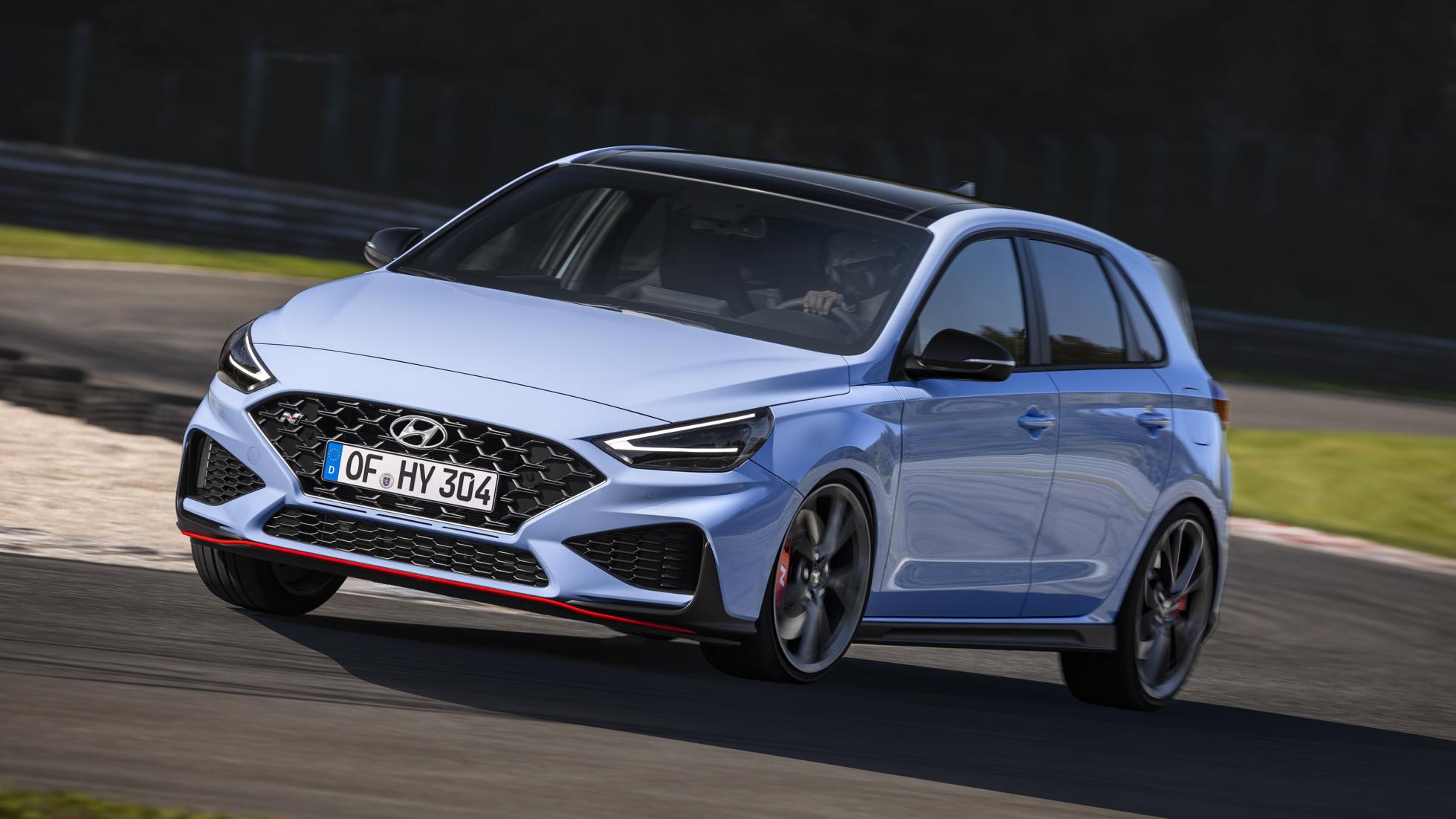
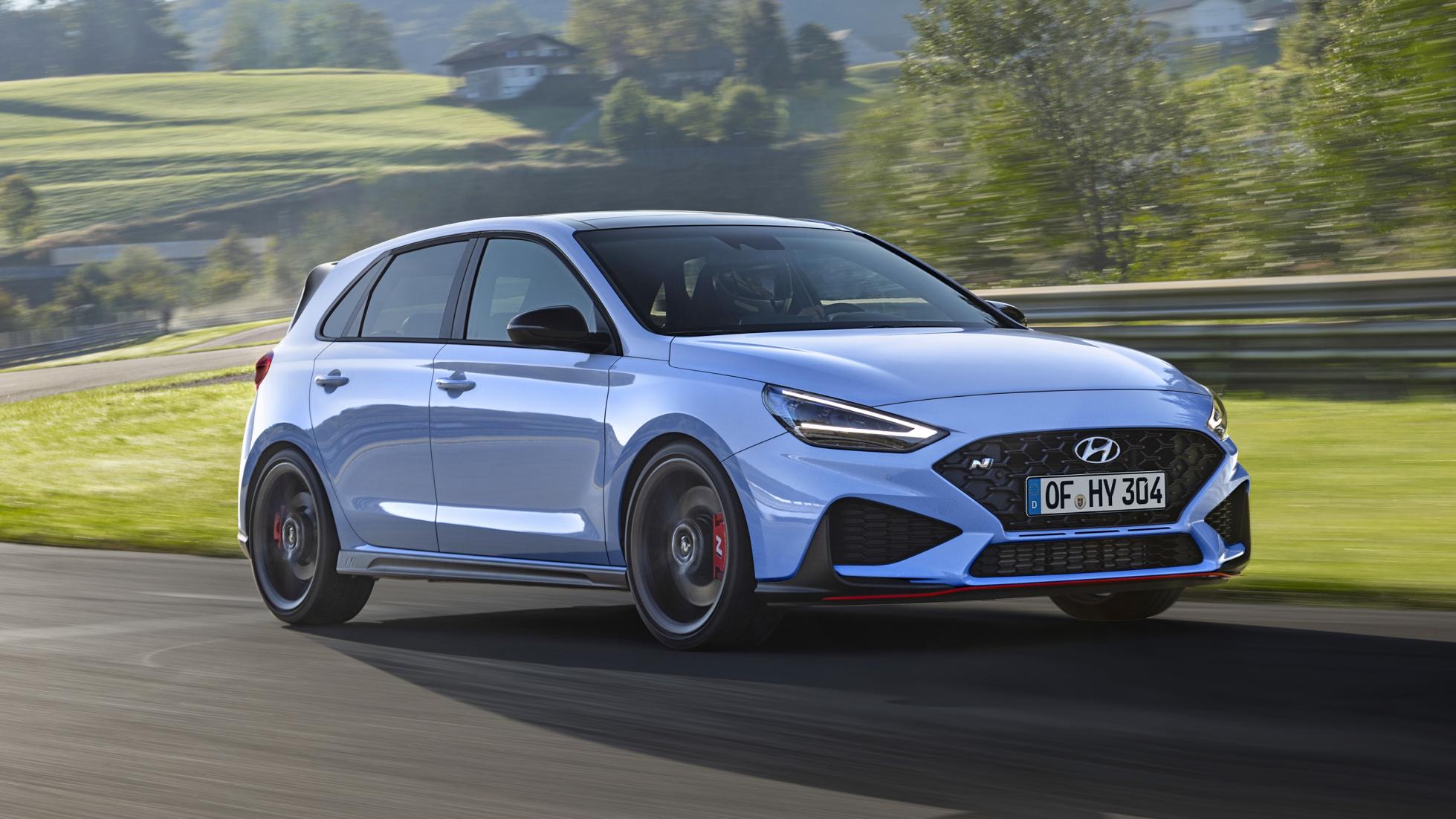
Ignore the silly names (Hyundai’s also renamed its electronic limited-slip differential the N Corner Carving Differential…), for they offer useful things such as a 20-second overboost function, much like Porsche’s Sport Response button, and a much more dynamic automatic shifting pattern when the car senses it’s on circuit.
If you don’t feel like pulling the paddleshifters, that is. It worked incredibly well when we tried the new Hyundai i30N DCT recently…
Other new stuff? Lightweight sports seats (which save 2.2kg), an ace-looking set of 19in forged alloy wheels wrapped in Pirelli P Zero tyres (cutting 14.4kg) and some retuned suspension.
What’s heartening is where the i30N has shunned changes evident in the stock i30 hatchback’s facelift. Such as the dials remaining analogue rather than turning digital and the handbrake staying mechanical.
Peak power doesn’t arrive ‘til north of 5,000rpm either, so you’ll still need to work this thing hard to experience it at its best. Hot hatches should always be worked hard, shouldn’t they?
STORY Stephen Dobie
